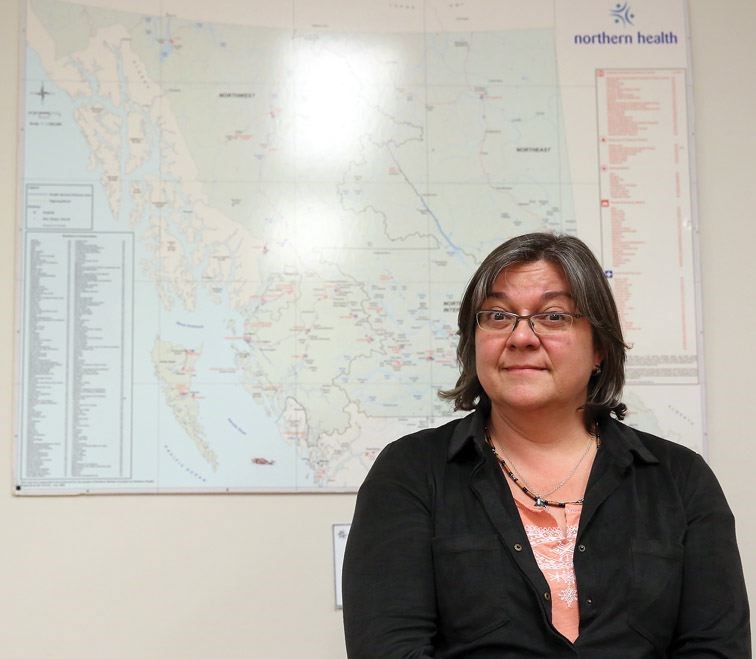Now that the province has declared a public health emergency due to the "dramatic" increase in the number of overdose deaths from fentanyl, Northern Health's Chief Medical Health Officer said it can better respond to the public health crisis.
"It's quite dramatic and it's quite alarming and as a society we want to be able to do something about it," said Dr. Sandra Allison, a few hours after the Thursday morning announcement.
B.C.'s medical health officer Dr. Perry Kendall says there were more than 200 overdose deaths involving the drug in the first three months of 2016 and at that rate, up to 800 people could die by the end of the year.
By the end of March, the north had already record 10 overdose deaths, three of which have been connected to fentanyl. Last year, 14 of 28 overdose deaths were connected to fentanyl. In 2015, Prince George had 13 deaths, including seven connected to fentanyl and this year one of the two deaths have been connected to the potent drug.
"We have seen a dramatic increase in overdoses in Prince George and to respond to that we've tried to increase the availability of take-home naloxone," said Allison, through she said in some cases when they suspect fentanyl is the culprit, it can't be confirmed."
It's been difficult to collect overdose information, Allison said, which has "limited our ability to be able to respond appropriately.
Now it's mandatory for emergency responders to report to public health who is overdosing and where it's happening.
"By increasing awareness, we hope that more resources will be pegged for prevention and treatment as well as increasing the responsibility of responders to let us know early. We have good relationships but now at this point in time it makes it mandatory."
Allison said the health authority has been working hard on the issue for the past six months, but the emergency "gives us the grounding to do a little more."
The new data will help public health officials figure out where the hotspots are, and Northern Health has heard it will take a couple weeks to determine reporting structures to have that level of information available.
There has been no word whether additional funding is available to the health authorities on the issue, Allison said, but the Ministry of Health said that could change.
"While funds are not currently earmarked, over the next few weeks, the provincial health officer will work with medical health officers, health authorities, emergency room doctors and staff, paramedics and other first responders and the BC Coroner’s Service to determine what is needed," said Hannah Lawrie, senior public affairs officer.
With the announcement B.C. became the first province in Canada to declare a public health emergency after a dramatic increase in the number of overdose deaths from fentanyl. Kendall served notice under the Public Health Act to exercise emergency powers.
Health Minister Terry Lake said the declaration will allow health officers to collect real-time information to help them quickly respond with prevention programs by targeting certain areas and groups of people instead of waiting for data from the coroner's office.
"We have to do everything we can to stop this toll," he said. "This is a public health crisis and it's taking its toll on families and communities across our province."
Fentanyl is an opioid-based pain killer roughly 100 times stronger than morphine. Recreational drug users may cut or manipulate a fentanyl patch or smoke a gel form of the drug.
The provincial government says overdoses are only reported now if someone dies, and there is some delay in the information being received from the coroner.
Under the measures announced Thursday, information on the circumstances of any overdose where emergency personnel or health-care workers respond will be reported as quickly as possible to medical health officers at regional health authorities. That information will include the location of an overdose, the drugs used, how they were taken, and the age and sex of the person who has overdosed.
Lake said B.C. has a history of leading the country with its harm-reduction strategies.
"We've always taken an evidence-based view, not an ideological view when it comes to harm reduction," he added.
Services include North America's only supervised injection site in Vancouver's Downtown Eastside, a needle distribution and collection program and free dispensing of the drug naloxone to reverse overdoses.
-with files from Canadian Press



